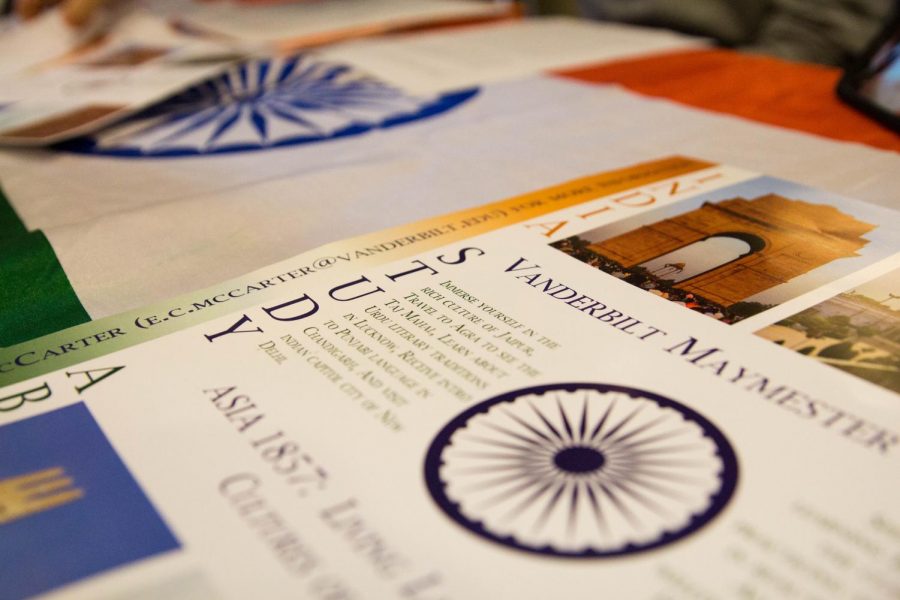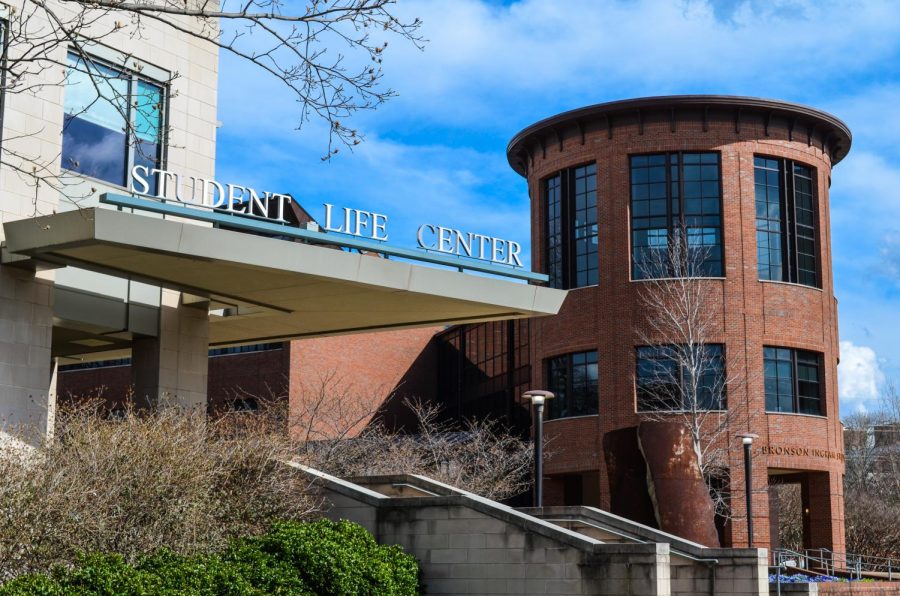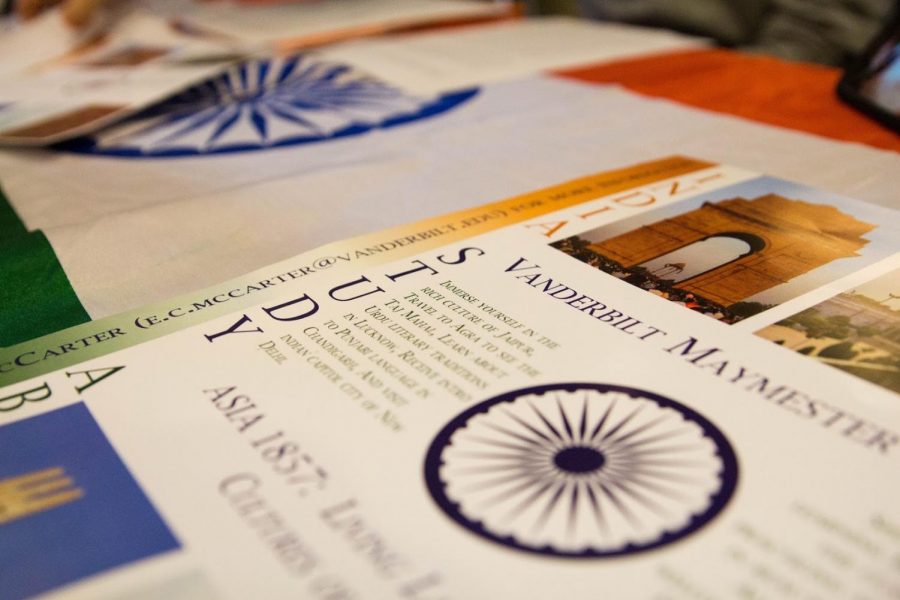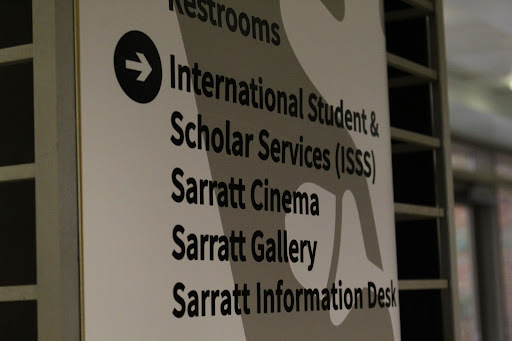Undergraduate students in Peabody College and the College of Arts & Science have had their summer study abroad options heavily restricted due to a change in Vanderbilt policy. Although Arts and Science Dean John Geer said this change had been noted in the 2018-19 undergraduate catalog, students were taken by surprise by a recent email to students reiterating the changes.
Students within Peabody College and the College of Arts & Science received emails stating that they would be ineligible to receive credits for coursework from international institutions not pre-approved by Vanderbilt University. Some students were caught off-guard by the email from the Dean of Undergraduate Education André Christie-Mizell and Associate Dean of the Study Abroad committee Dan Morgan and the deans of their respective undergraduate schools on Jan. 28 and Feb. 6.
According to Global Education Office (GEO) peer advisor and Carmichael Towers Senator Alejandro Monzon, Vanderbilt didn’t alert the GEO office of the policy change when they put the policy change into the course catalog last year. GEO advises students on studying abroad both during the academic year and over the summer, and the email announcement caught his GEO coworkers off-guard as they had no advance warning and only found out about the change when the first email was released, Monzon said.
Some students, like first-year student Brandon Yang, had already paid for summer courses at outside institutions and were counting on the credit in order to graduate in a timely manner. Yang, who is from South Korea, said that planning his summers is difficult because of South Korea’s mandatory military service program and the requirement for his HOD capstone internship.
“Vanderbilt doesn’t want their students to be global leaders of the world,” Yang said. “We don’t even have an extensive study abroad portfolio in the first place. I think it’s an attempt to take more money from us because if they don’t allow credits to be transferred to Vanderbilt, then we have to take summer school here.”
Geer said that the policy had actually been in last academic year’s undergraduate catalog. The change was a result of efforts to put Peabody and the College of Arts and Sciences on the same page when it comes to accepting credit from international institutions, according to Geer. When asked about considerations for students who had already paid for courses, Dean Geer indicated resolution.
“All has been resolved,” Geer said. “We announced and put the policy in our catalog a year ago, and obviously students either got bad information or did not consult the right people.”
Alejandro Monzon compared the cost of third-party summer study abroad programs to that of Vanderbilt programs. As of Vanderbilt’s 2019 summer budget sheet, the Vanderbilt programs are on average $2,824.24 more expensive than programs directly from third-party providers, Monzon said.
Part of the reason for this price disparity is that the price of Vanderbilt-approved summer programs are based on Vanderbilt tuition, and Vanderbilt charges a mark-up of 3 percent to 127 percent, according to Monzon.
Monzon’s role as a GEO peer advisor, as well as the timing of the email announcements, led him to co-sponsor a VSG bill about the policy shift, called the Summer Study Abroad Inclusivity Act of 2020. The bill calls on administration to delay the implementation of this change and “take additional steps to increase financial inclusivity of summer study abroad programs.”
“Vanderbilt owes more to its students in terms of transparency, especially with something that only affects students,” Monzon said. “Something that’s this forward in student life being done in what I consider to be an un-transparent manner seems to be a very big breach of trust.”
The resolution, proposed by Monzon along with Alumni Lawn Senator Sharonda Adams and Arts and Sciences Senator Will Fritzler, calls for the delayed implementation of the policy as well as implores Blair and the School of Engineering from adopting similar approaches. Further, it asks the undergraduate schools to work with the Board of Trust to re-evaluate study abroad tuition structure.
It was passed unanimously at the VSG Senate meeting on Feb. 12 after a clarifying amendment by Speaker of the Undergraduate Senate Sean Swinford.
“GEO scholarships are capped,” Adams said. “There are many conversations about how to properly implement those funds. That’s a whole mess in and of itself.”
GEO further said that it could help students affected by the change however they could, and that such changes did not affect pre-approved study abroad programs.
“The new A&S policy concerns the categories of transfer credit the college will accept; it does not represent a change to Vanderbilt’s approved study abroad programming,” GEO Director Arik Ohnstad said in an email to The Hustler. “Wherever possible we will try to extend summer and fall deadlines for A&S students who might be changing their plans.”
International Student and Scholar Services redirected The Hustler to the Global Education Office, but emphasized that it supports international students who come to Vanderbilt on exchange credits.
Overall, Arts & Sciences Senator Will Fritzler calls for a change in implementation.
“This bill addresses the broader issue of inclusivity,” Fritzler said. “This is more all-encompassing.”
Note: Will Fritzler is a sports staff writer for The Hustler.
Correction: An earlier version of this article stated that the London School of Economics was not eligible for Vanderbilt international study abroad credit. While this was true when the Jan. 28 policy change announcement was made, the London School of Economics has since been added to the list of Vanderbilt-approved programs.









